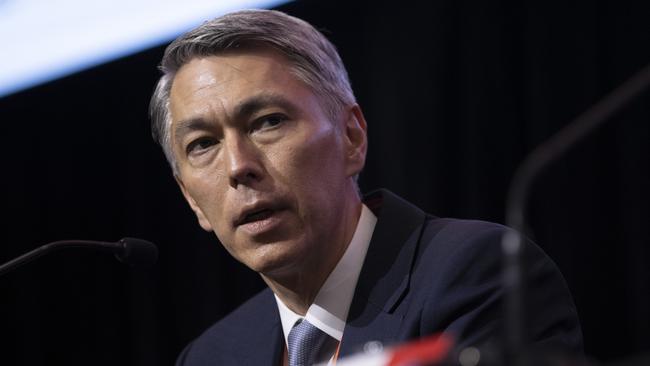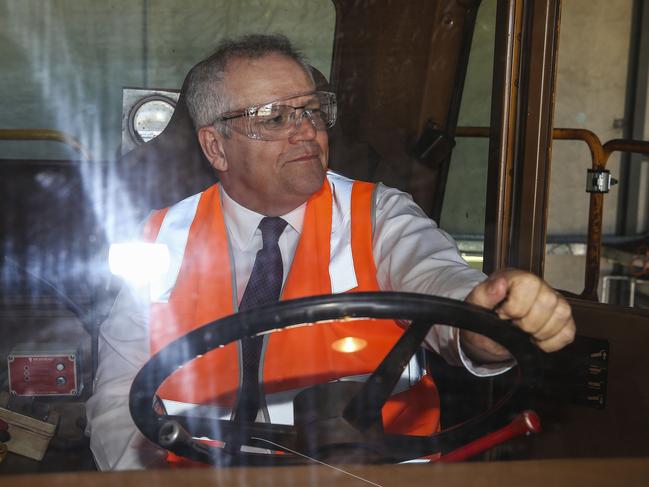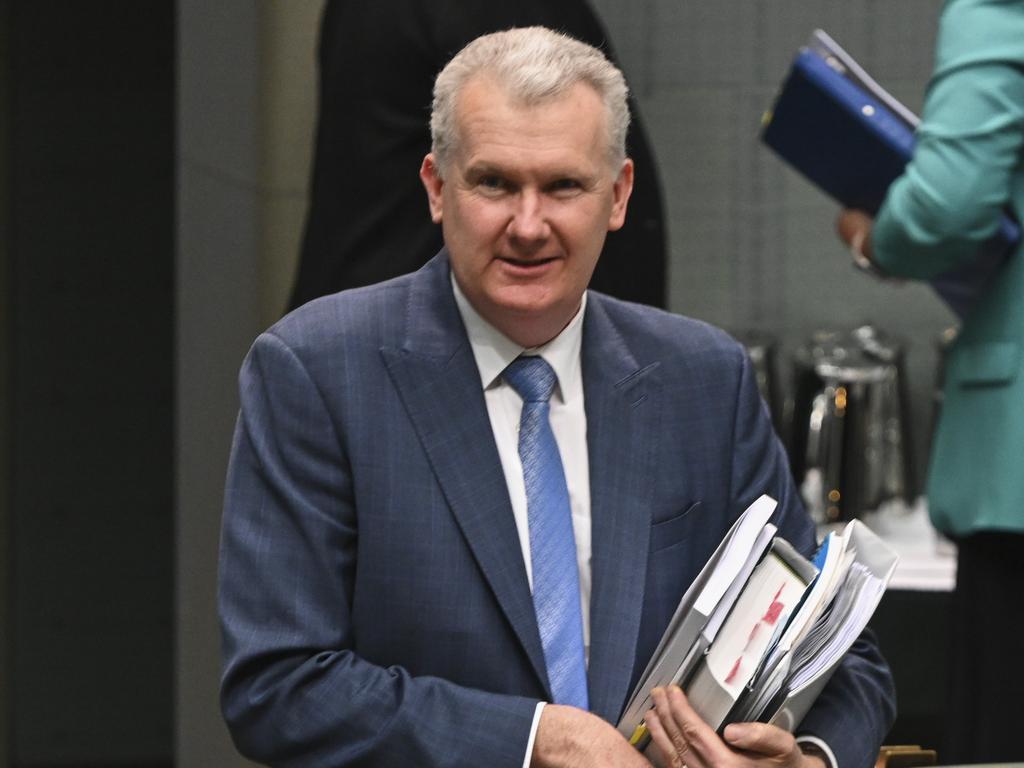BHP warns same job same pay cost will exceed $1.3 billion
BHP has declared the cost to the mining giant of Labor’s IR changes threaten to make its $300m apprentice and traineeship program ‘unfeasible’.

BHP has declared the cost to the mining giant of Labor’s industrial relations changes will be significantly higher than its previous estimate of $1.3 billion annually, warning the legislation threatens to make its $300 million apprentice and traineeship program “unfeasible”.
In a submission to the Senate inquiry into Labor’s Closing Loopholes Bill, BHP said it was strongly opposed to the same job same pay labour hire changes “because of the damage it threatens to do to our business as well as to Australia’s economy, to Australian jobs and to Australia’s productivity and international competitiveness”.
The government is not closing loopholes, “they are tieing businesses in knots, it says, introducing “significant new costs for the entire resources sector, both in terms of direct labour costs but also costs associated with lower productivity and less flexibility”.

“These are costs which cannot simply be absorbed and will create difficult decisions for the entire resources sector about making cuts to offset the impact of the bill, deferring or cancelling investments, or ultimately closing mines when the underlying cost base becomes uncompetitive,” BHP says
Calling the bill the “most significant and far-reaching change to Australian workplace relations since WorkChoices”, BHP says the legislation threatens the future of all forms of labour hire and the future of large, long-running service contractor businesses.
BHP has previously estimated the financial impact of the labour hire changes to its Australian operations would be up to A$1.3 billion annually, equivalent to the labour cost of approximately 5,000 full-time employees across its operational workforce.
BHP says it has sought but not received further information from the Department of Employment and Workplace Relations to allow the company to make fresh calculations about the financial impact of the labour hire changes.
“Clearly, SJSP (Same Job Same Pay) will have significant and material impacts across the whole sector and economy,” its submission says.
“Given it is now clear that the bill does not expressly exclude service contractors, which make up a significant part of the overall resources workforce, and given the bill provides no certainty as to how the Fair Work Commission will exercise its discretion, it must be assumed that they will be impacted by the SJSP provisions.
“We therefore expect a significant upward revision to our initial costing….the significant increased labour cost of SJSP will not be accompanied by any associated increase in productivity, indeed it will most likely decrease productivity.
“Our suppliers will most likely pass on their increased labour costs, and without any increased benefit to BHP. Ultimately, any increased costs are borne by a large majority of Australians, who are direct or indirect shareholders in BHP (and other Australian companies).”
BHP accused the government of wanting to use the legislation to stymie its mining services division, OS, claiming the government had mischaracterised OS as “internal labour hire”.
The company says the same job same pay changes will leave the future of BHP’s FutureFit training program highly uncertain.
FutureFit academies have been established in Western Australia and Queensland under the auspices of Operations
Services.
The program promises to create 2,500 new traineeships and apprenticeships over five years, with entrants joining BHP in permanent roles upon graduation.
In 2022, 80 per cent of FutureFit students were female, 20 per cent Indigenous and retention was more than 83 per cent.
“As a result of the government’s legislation, BHP’s continued FutureFit investment, and the opportunities it is providing to a new wave of Australians to enter the resources industry, may become unfeasible,” it says..
It says BHP is the most held security by self-managed superannuation funds and managed funds. Over 600,000 Australians hold shares directly in BHP, and around 17 million Australians who indirectly hold shares in BHP via their superannuation.
“SJSP will directly impact these annual dividends and value of their BHP holdings,” the submission says. “When the impact to all Australian companies is taken into account, the government’s SJSP policy can be expected to have a materially negative impact on the value of the retirement savings of 17 million Australians.”








To join the conversation, please log in. Don't have an account? Register
Join the conversation, you are commenting as Logout